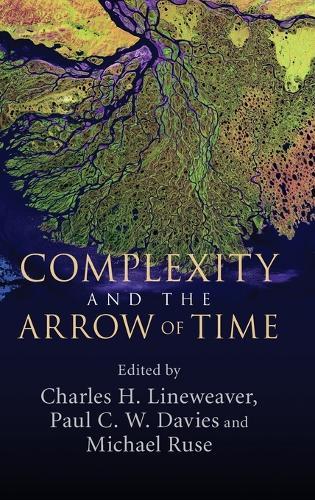Overview
There is a widespread assumption that the universe in general, and life in particular, is 'getting more complex with time'. This book brings together a wide range of experts in science, philosophy and theology and unveils their joint effort in exploring this idea. They confront essential problems behind the theory of complexity and the role of life within it: what is complexity? When does it increase, and why? Is the universe evolving towards states of ever greater complexity and diversity? If so, what is the source of this universal enrichment? This book addresses those difficult questions, and offers a unique cross-disciplinary perspective on some of the most profound issues at the heart of science and philosophy. Readers will gain insights in complexity that reach deep into key areas of physics, biology, complexity science, philosophy and religion.
Full Product Details
Author: Charles H. Lineweaver (Australian National University, Canberra) ,
Paul C. W. Davies (Arizona State University) ,
Michael Ruse (Florida State University)
Publisher: Cambridge University Press
Imprint: Cambridge University Press
Dimensions:
Width: 15.80cm
, Height: 2.00cm
, Length: 23.40cm
Weight: 0.740kg
ISBN: 9781107027251
ISBN 10: 110702725
Pages: 368
Publication Date: 08 August 2013
Audience:
General/trade
,
General
Format: Hardback
Publisher's Status: Active
Availability: Manufactured on demand

We will order this item for you from a manufactured on demand supplier.
Reviews
Endorsement: The emergence of complex systems after the Big Bang, from a Universe that started out in a very simple state, is one of the great puzzles of science. This book provides the best single-volume insight into the nature of this puzzle, and hints at its possible resolution. It may be the answer to life, the Universe, and everything. John Gribbin Endorsement: In physics, chemistry and biology, the topic of complexity is, in a word, complicated. This collection is invaluable as an introduction to the many intractable open questions this subject raises, such as how best to define complexity, and how, why and if it increases. Jeremy Butterfield, University of Cambridge
Advance praise: 'The emergence of complex systems after the Big Bang, from a Universe that started out in a very simple state, is one of the great puzzles of science. This book provides the best single-volume insight into the nature of this puzzle, and hints at its possible resolution. It may be the answer to life, the Universe, and everything.' John Gribbin Advance praise: 'In physics, chemistry and biology, the topic of complexity is, in a word, complicated. This collection is invaluable as an introduction to the many intractable open questions this subject raises, such as how best to define complexity, and how, why and if it increases.' Jeremy Butterfield, University of Cambridge




